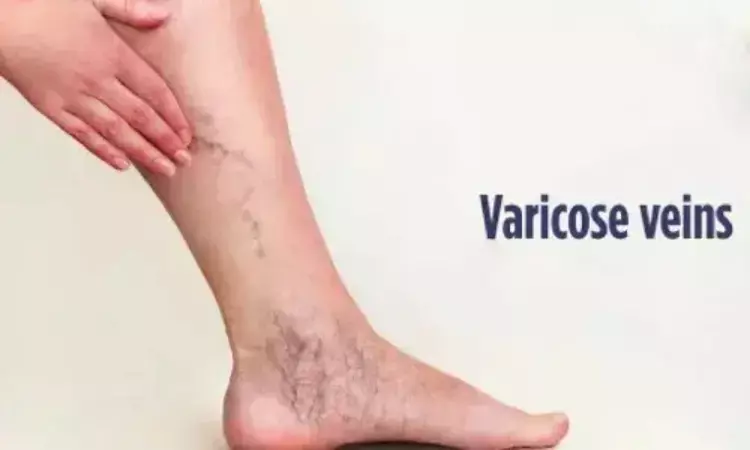- Home
- Medical news & Guidelines
- Anesthesiology
- Cardiology and CTVS
- Critical Care
- Dentistry
- Dermatology
- Diabetes and Endocrinology
- ENT
- Gastroenterology
- Medicine
- Nephrology
- Neurology
- Obstretics-Gynaecology
- Oncology
- Ophthalmology
- Orthopaedics
- Pediatrics-Neonatology
- Psychiatry
- Pulmonology
- Radiology
- Surgery
- Urology
- Laboratory Medicine
- Diet
- Nursing
- Paramedical
- Physiotherapy
- Health news
- Fact Check
- Bone Health Fact Check
- Brain Health Fact Check
- Cancer Related Fact Check
- Child Care Fact Check
- Dental and oral health fact check
- Diabetes and metabolic health fact check
- Diet and Nutrition Fact Check
- Eye and ENT Care Fact Check
- Fitness fact check
- Gut health fact check
- Heart health fact check
- Kidney health fact check
- Medical education fact check
- Men's health fact check
- Respiratory fact check
- Skin and hair care fact check
- Vaccine and Immunization fact check
- Women's health fact check
- AYUSH
- State News
- Andaman and Nicobar Islands
- Andhra Pradesh
- Arunachal Pradesh
- Assam
- Bihar
- Chandigarh
- Chattisgarh
- Dadra and Nagar Haveli
- Daman and Diu
- Delhi
- Goa
- Gujarat
- Haryana
- Himachal Pradesh
- Jammu & Kashmir
- Jharkhand
- Karnataka
- Kerala
- Ladakh
- Lakshadweep
- Madhya Pradesh
- Maharashtra
- Manipur
- Meghalaya
- Mizoram
- Nagaland
- Odisha
- Puducherry
- Punjab
- Rajasthan
- Sikkim
- Tamil Nadu
- Telangana
- Tripura
- Uttar Pradesh
- Uttrakhand
- West Bengal
- Medical Education
- Industry
Men who follow vegetarian diet at higher risk of developing varicose veins, finds study

Taiwan: Men who follow a vegetarian diet are at greater risk for developing varicose veins (VVs) compared to men who are on an omnivorous diet, a recent study published in Frontiers in Nutrition has revealed.
Additionally, the study showed that irrespective of their diet, women had a higher risk of developing varicose veins than men.
Varicose veins are a common vascular disease in developed countries, posing a substantial medical burden. The condition is characterized by clearly visible, tortuous, dilated, and possibly prominent subcutaneous veins in the lower extremities. The risk factors for varicose veins include parity, age, long-standing hours, obesity, and heavy lifting.
Evidence suggests that a vegetarian diet reduces the risk of cardiovascular disease, coronary heart disease, and associated mortality. A plant-based diet has also been associated with a reduced risk of heart failure, metabolic syndromes, type 2 diabetes, cerebrovascular disease, weight management, lower blood pressure, and improved lipid profiles.
However, there has been no investigation on the impact of a vegetarian diet on the pathogenesis of varicose veins. There needs to be clarity on vegetarian diets' role in disease pathogenesis. Therefore, Cheng-Ken Tsai, Chung Shan Medical University, Taichung, Taiwan, and colleagues examined the risk of varicose veins in vegetarian and non-vegetarian women and men.
The included 9905 adults whose data was from the Taiwan Biobank between 2008 and 2020. They obtained information on varicose veins, vegetarian diets, and sex from the Taiwan Biobank questionnaires that contained participants' self-responses.
The study revealed the following findings:
- The study subjects consisted of 4,142 men and 5,763 women. About 12% of men and 35% of women had VVs.
- Study participants were predominantly non-vegetarians (91.84% were men, and 88.24% were women).
- Women had a higher risk of VVs than men. The odds ratio (OR) was 3.414.
- There was a significant interaction between sex and vegetarian diets.
- Women were at higher risk of VVs than men in the vegetarian (OR = 1.877) and non-vegetarian (OR = 3.674) groups.
- Based on vegetarian diets, only vegetarian men had a higher risk of VVs (OR = 1.453).
- Based on the sex-stratified model, the risk of VVs was significantly higher in vegetarian men (OR = 1.457) and vegetarian and non-vegetarian women, with corresponding ORs of 3.101 and 3.599, respectively.
"Regardless of diet, Taiwanese women were found to have a greater risk of varicose veins than men," the researchers wrote. However, regarding diet, only men who followed a vegetarian diet were at a higher risk of VVs development."
"Our study indicates that sex-related factors may play a more prominent role in varicose veins development than diet-related factors," they conclude. "Clinicians should consider both variables as predisposing factors for varicose veins when managing chronic venous diseases."
Reference:
Tsai, C., Nfor, O. N., Tantoh, D. M., Lu, W., & Liaw, Y. (2023). The association between vegetarian diet and varicose veins might be more prominent in men than in women. Frontiers in Nutrition, 10, 1046158. https://doi.org/10.3389/fnut.2023.1046158
Dr Kamal Kant Kohli-MBBS, DTCD- a chest specialist with more than 30 years of practice and a flair for writing clinical articles, Dr Kamal Kant Kohli joined Medical Dialogues as a Chief Editor of Medical News. Besides writing articles, as an editor, he proofreads and verifies all the medical content published on Medical Dialogues including those coming from journals, studies,medical conferences,guidelines etc. Email: drkohli@medicaldialogues.in. Contact no. 011-43720751


